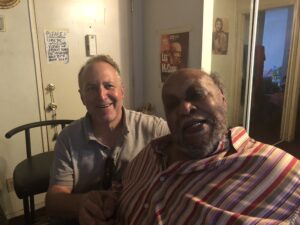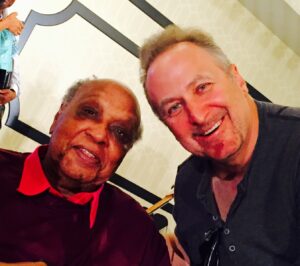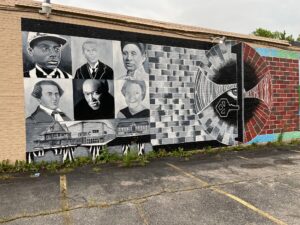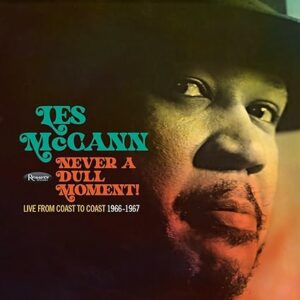It’s never easy to hear about someone’s passing. It’s most complicated when that person feels like family. While Les McCann was not a blood relative, he was someone I knew for most of my life, spoke to regularly for the past many years, and someone who inspired me to be better.
Whenever Les comes to mind, I always think of his advice. He said: If you listen to “Compared to What” every day, you’re going to have a great day. Something infectious in that song brings a smile, even though its message doesn’t scream, “You’re going to be all right.”
So, in listening to “Compared to What” and embodying its energy, it didn’t matter that it was an anti-war protest – it was about believing in yourself and doing what you thought was right. Looking back, I realize that’s what he meant by insisting I make it part of my daily routine.
The news of his passing the last week of December hit hard. My attempts to reach him since before Christmas were unsuccessful; his phone persistently claimed he was unavailable. Now, I know why.
Our conversations were filled with heartfelt banter. ‘It’s your brother McCann.’ We would move on from there. I don’t mean to suggest that talking with Les was always sunny and rose-colored. One of his popular mantras was every time we would disagree; he would say – “I thought I taught you something all these years…’ and then he would let me know I hadn’t heard a word he said. That was our way of having fun.
But his parting words were always the same, “Love you man. My love to you and your boys.”
When I would dare complain about something, Les’ profound advice was akin to, “You need to enjoy that she isn’t who you want her to be. Just enjoy it and be the person you are, and let her be who she is.” That part of his genius was more accessible to hear than follow.
As a young boy, I would talk with him when he came to the house to see my mother and stepfather. His initiation into a lifelong affair with photography began, thanks to the cameras my stepfather used to get him from frequent trips to Japan.
My first live experience of Les in concert was when I was in high school when he was performing at the Roxy in Los Angeles. His presence and his music were nothing short of magical.
Throughout the years, he kept a hold on the audience in every performance I saw. He demanded attention and insisted you listen.
I was reminded of this when I watched a YouTube video of a 1961 performance of “Go On and Get That Church.” Even with only the B camera capturing the moment, it exuded passion, power, and love.
Several years ago, with my kids still young, we attended one of his shows at the Jazz Bakery in Culver City. Before closing the set with his signature ‘Compared to What,’ he told the audience that my kids were serving as his bodyguards. That moment became a cherished memory for them.
At my favorite sushi restaurant in Studio City, Ahi, a young sushi chef, recognized Les. “How do you know me,’ he asked. ‘I’m from Japan,’ the young man answered, ‘we love jazz.’
Les beamed.
I always wanted to know more about hip-hop artists like Snoop Dogg, Dr. Dre, Ice T, and Notorious B.I.G, who sampled his work, and if anyone had contacted him. If they did, he didn’t say. But I sensed its significance for him — that his music continued to inspire.
Even at his size, Les was an avid tennis player. Playing tennis with him was an experience. He was surprisingly agile and undoubtedly competitive. Eddie Harris once said, ‘There are currently two black tennis players on the tour – Yannick Noah and Les McCann.’
A journey to Kentucky with my brother and nephew a few years back became an adventure when Les asked me if I would go through his hometown of Lexington and visit his childhood home. His directions were quintessentially Les, a mix of impatience and outrage that I didn’t understand. ‘You see this place and make a left, and then the next street, you make a right and then another right… Les, what’s the address?” He then scolded me for not paying attention.
We made it a point to walk around Lexington. There was a school named after him in Lexington that seemed like a promising lead. On the way, we passed a billboard with his larger-than-life image.
When I Face-Timed him to show him, he gave me the street and address and when I showed him the front of his house, I could tell he was touched, “No one has ever done that for me before,’ he said.
One of the last times we spoke, he was excited about the latest release of his work – a 3-disc set of a previously unreleased collection of live recordings from 1966-1967 called “Never a Dull Moment.”
I’ll miss our calls and getting chewed out by him because I am imperfect, and I didn’t remember or didn’t adopt his perspective on the world.
Most of all, I’m going to miss his energy. His unique view of things. His honesty.
His manager, Alan Abrahams, says, ‘There will never be another Les.’ He’s right. There won’t be. And the world is a bit sadder now that he’s moved on.

With Les on one of his birthdays…

After one of his shows

The billboard in Lexington, KY

His latest release!!!
